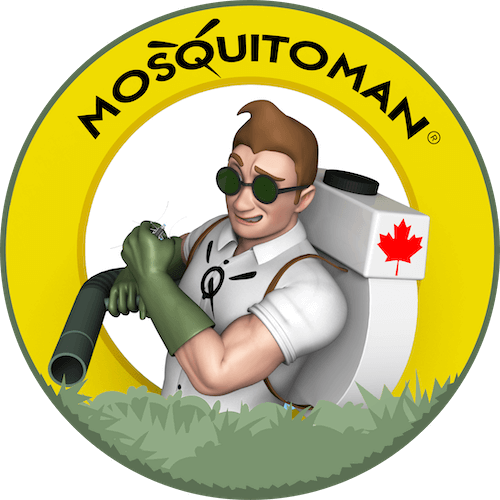Professional SPIDER Control Services in Canada
Our Spider Control & Removal Service
Believe it or not, spiders are a beneficial pest. They are skilled predators, using their webs to trap unsuspecting pests in and around your home. And, while most house spiders are harmless, discovering their webs can be an unsettling experience. Keep in mind the venomous variety (black widow, brown recluse, etc.) do not create webs indoors, so if you stumble upon these pests while you’re outside, please give us a call. Bites are rarely fatal, but they are very painful, and it’s better to be safe than sorry!
Areas We Serve Spider Control & Removal
Mosquito Man has been getting rid of spiders and pests in the province of Ontario for the last 6 years! Each city and town is different – we know this, as we have been providing top notch Spider and Pest Control in Amherstburg, Brampton, Burlington, Caledon, Cambridge, Chatham, Essex, Hamilton, Kingsville, Kitchener, LaSalle, Leamington, London, Markham, Milton, Mississauga, Newmarket, Oakville, Richmond Hill, Sarnia, Stoufville, Tecumseh, Thornhill, Toronto, Vaughan and Waterloo and more!
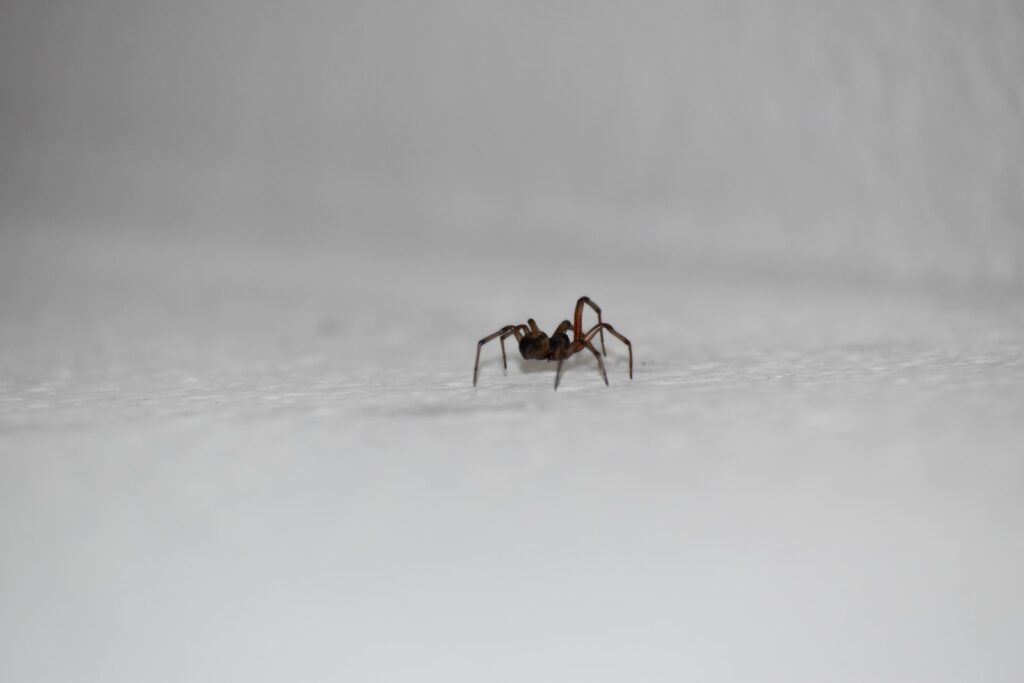
Our Unique Approach To Spider Control & Removal Service
Since every spider situation is unique, we’ll come up with a custom solution for you. With over 10 years of experience spraying for spiders, we’re Ontario‘s leading provider of spider control services. Learn how we keep spiders (and other common household pests) out of your home:
1. SPIDER SITE INSPECTION
2. SANITATION
We’ll begin by reducing favorable spider conditions. This includes, but is not limited to, decluttering your yard and crawl space, and removing any ground covers against your walls. We’ll sweep the perimeter of your home (windows, doors, utility boxes, etc.).
3. LIQUID SPIDER TREATMENT
4. DUSTING SPIDER TREATMENT
5. SPIDER MONITORING
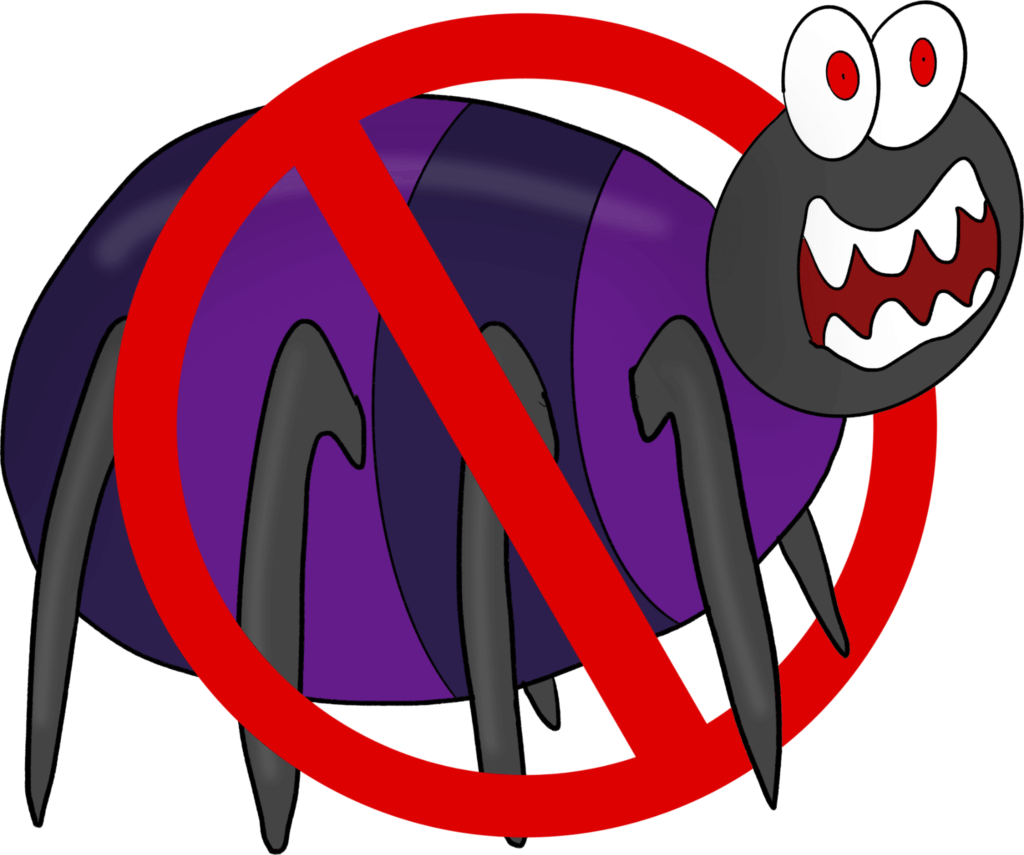
Spider Control
Starting at
$399/YEAR
Site InspectionWebbing SweepLiquid TreatmentDusting TreatmentMonitoring/Maintenance
or dial 519-9709136
SAVE ON OUR MOSQUITO CONTROL PACKAGE
Spider Control
Starting at
$123/MO
Site Inspection
Webbing Sweep
Liquid Treatment
Dusting Treatment
Monitoring/Maintenance
or dial 519-9709136

Why Choose Mosquitoman
Value
After your pest inspection, we’ll provide you with a quote that makes sense for your budget and unique needs.
Service
We’re not happy unless you are. So if you’re not satisfied with your most recent service, we’ll make it right.
Trust
We know you are putting a lot of trust in our hands. So we promise to treat you and your home with respect.
Why Choose Mosquitoman

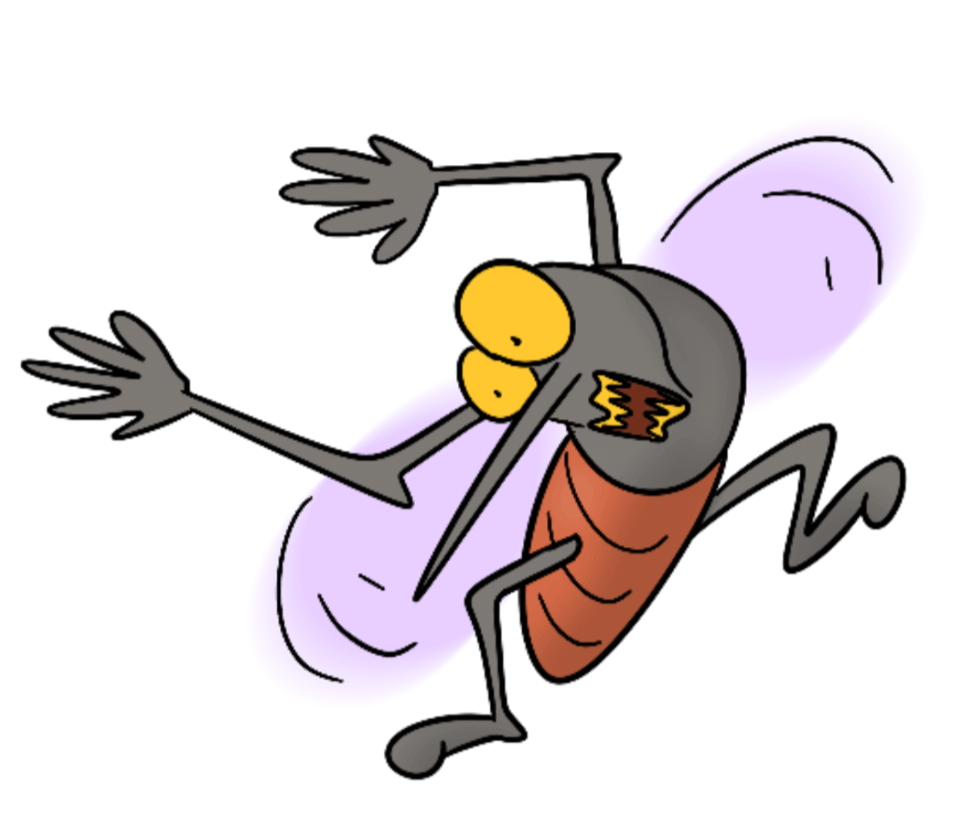
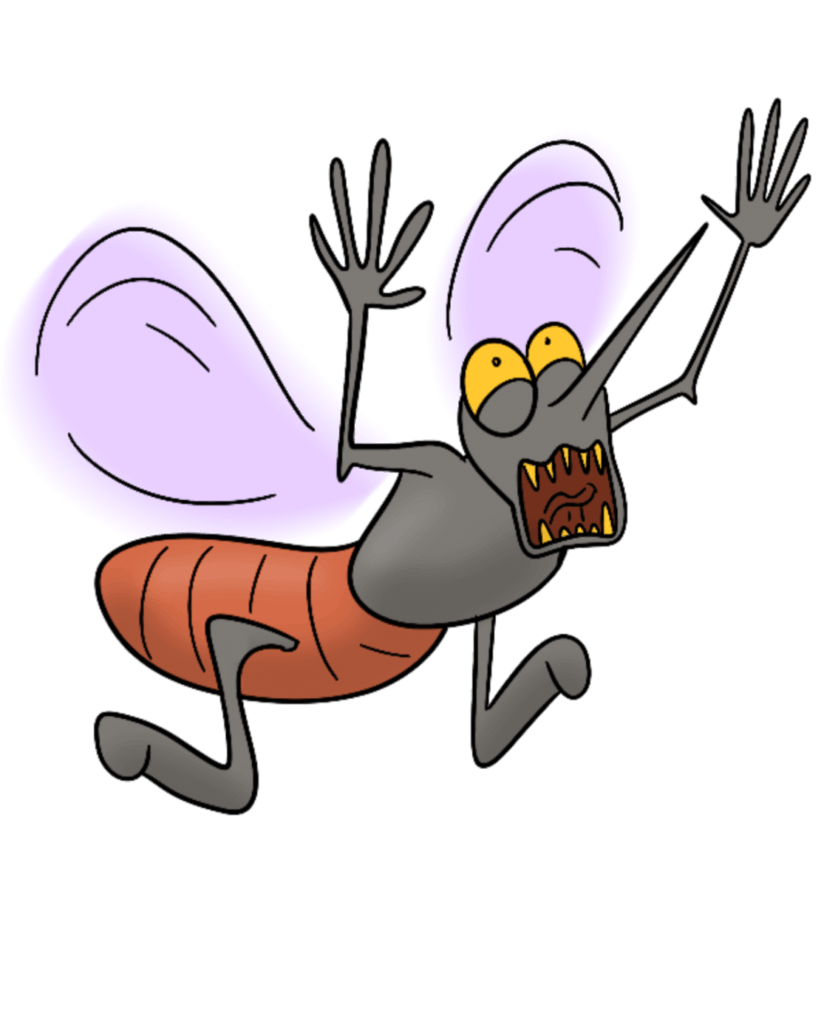
Our Mosquito & Pest Control Services

Yard Protection
From
$450
$
BEST VALUE!
SAVE 20%
Read more
Your Package Includes:
- A Free Larviciding for standing water
- A Free Assessment of the property
- Licensed Technicians
- World Class Customer Service
- A Schedule to service time that is quick and efficient
- Our Super Hero Guarantee — if you’re not satisfied we come back!

Home Protection
From
$300
$
BEST VALUE!
SAVE 20%
Read more
Your Package Includes:
- A Free Larviciding for standing water
- A Free Assessment of the exterior of the home
- Licensed Technicians
- World Class Customer Service
- A Schedule to service time that is quick and efficient
- Our Super Hero Guarantee — if you’re not satisfied we come back!

Full Protection (Yard + Home)
From
$600
$
BEST VALUE!
SAVE 20%
Read more
Your Package Includes:
- Free Larviciding for standing water
- A Free Assessment of the yard and exterior of the home
- Licensed Technicians
- World Class Customer Service
- A Schedule to service time that is quick and efficient
- Our Super Hero Guarantee — if you’re not satisfied we come back!
Frequently Asked Questions
Spiders enter your home through loose screens and cracks under your windows and doors. They move indoors, searching for food, mates, warmth, and moisture. In fact, the presence of other pests is a common reason spiders come inside; they’re on the hunt for prey. This is why part of our spider control program also targets common household pests. Spiders never stop trying to enter your home, and the team at Mosquito Man never stops working to keep them out. So if you’re dealing with a spider problem.
Most spiders pose little to no threat to humans, but some species deliver painful bites that cause medical issues. In the United States, the two most common species of venomous spiders are black widows and brown recluse. If you spot either of these, please give us a call at 519-970-9136! It’s important we protect your family and pets from these poisonous pests.
Yes! All our spider control products are applied by thoroughly trained technicians who follow standard safety measures to ensure your family and pets are kept safe before, during, and after your spider control service. If you have any questions.

Client Feedback
Other Services
How Do Different Types of Spiders Affect Your Home?
Common Household Spiders
Spiders are often found in homes, and here are some common types:
- Common House Spiders: Usually harmless, they help control other pests.
- Cellar Spiders: Live in dark, damp places such as basements.
- Zebra Spider: Known for their black and white stripes.
- Wolf Spider: Larger spiders that are often found on the ground level.
- Hobo Spider: Also known as tegenaria agrestis, sometimes confused with the brown recluse.
- Jumping Spiders: Small spiders that jump short distances.
- Daring Jumping Spiders: A type of jumping spider with bold markings.
- Black and Yellow Garden Spiders: Found in gardens, they help with pest control.
Venomous vs. Non-Venomous Spiders
Knowing the difference between venomous and non-venomous spiders is important for safety:
- Venomous Spiders:
- Brown Recluse (Loxoceles): Known for their harmful bite.
- Black Widow (Latrodectus): Has a red hourglass mark on its abdomen.
- Non-Venomous Spiders: Most house spiders fall into this group and are not a threat.
Identifying Spider Habitats Indoors
Understanding where spiders like to live indoors can help control them:
- Common Hiding Places: Corners, basements, attics, and garages.
- Webs and Cobwebs: Signs that spiders are present.
- Moisture Areas: Spiders often live where there is more moisture.
Seasonal Spider Behaviour
Spiders behave differently depending on the season:
- Spring and Summer: More active and start mating.
- Autumn: Move indoors seeking shelter.
- Winter: Less visible but may stay active in warmer areas.
- Egg Laying: Often occurs in cycles matched with seasons.
Spider Web Patterns and What They Indicate
Different types of webs can tell you about the spider species and behaviour:
- Orb-Weavers: Make circular webs, usually outside.
- Funnel Webs: Thick, funnel-shaped webs often in corners.
- Sheet Webs: Flat webs found in grass and bushes.
By learning these patterns, you can identify which spiders you have and their preferred habitats. For more information on spider control methods, visit Mosquito Man’s website.
What Are Effective Spider Control Methods?
Chemical Treatments for Spider Control
Chemical treatments can be a powerful way to handle spider infestations. These methods often involve using insecticides and pesticides specifically designed for spider extermination.
- Insecticides and Pesticides: These chemical solutions kill spiders and can be applied around the home or garden.
- Spider Control Products: Various products target spiders directly and help keep them from coming back.
While chemical treatments are effective, it’s important to follow the product instructions carefully for safety reasons. Always wear protective gear when handling these chemicals.
Natural Repellents for Spiders
If you prefer non-toxic spider control, natural repellents are a good alternative. These solutions are safer for both humans and pets.
- Essential Oils: Oils such as peppermint, tea tree, and lavender repel spiders. Mix with water and spray around your home.
- Diatomaceous Earth: This natural powder can be sprinkled around entry points to deter spiders.
- Vinegar: A mixture of vinegar and water can act as an organic spider control method.
Natural repellents are eco-friendly and easy to use, offering peace of mind without harsh chemicals.
Pros and Cons of DIY Spider Control
DIY spider control can be effective, but it’s crucial to consider the advantages and disadvantages.
Pros:
- Non-toxic Options: Many DIY methods use natural ingredients, which are safer.
- Cost-effective: DIY solutions are often less expensive than professional services.
- Convenience: You can apply treatments at your own pace.
Cons:
- Limited Effectiveness: DIY methods may not be as effective for severe infestations.
- Safety Concerns: Handling even non-toxic substances requires caution and proper protective gear.
- Time-consuming: DIY spider removal can take more time compared to professional treatments.
Weighing these factors can help you decide if DIY methods are right for you.
Professional Spider Extermination Services
For extensive spider issues, professional spider control services provide expert solutions. Hiring a spider exterminator ensures thorough spider removal with minimal risk.
- Experience: Professionals have the experience and equipment necessary for effective spider control.
- Pest Control Services: Comprehensive services often address not just spiders but other pests too.
- Expert Advice: Getting tips from experts can help avoid future infestations.
Choosing professional services ensures that the problem is handled efficiently and effectively.
Spider Traps: How Effective Are They?
Spider traps are another useful tool for spider control. These traps catch spiders and prevent them from roaming freely in your home.
- Spider Traps: Many options are available, from sticky traps to mechanical ones.
- Spider Control Solutions: Traps can be part of an integrated spider deterrent strategy.
- Catch and Release: Some traps allow you to catch spiders and release them outside.
Using spider traps as part of your overall spider control plan can help maintain a spider-free environment.
By understanding these spider control methods, you can choose the best approach for your specific situation, keeping your home safe and comfortable. For more information on spider control products, visit Mosquito Man.
How To Prevent Spiders from Entering Your Home
Sealing Entry Points
To keep spiders out, focus on sealing entry points. Spiders enter through small cracks around doors, windows, and foundations. Here are a few simple steps for spider prevention:
- Look for any cracks or gaps in your home.
- Seal these entry points with caulk or weather stripping.
- Make sure all doors and windows close tightly without gaps.
By spider-proofing your home, you make it less inviting for spiders.
Landscaping Tips to Deter Spiders
Good landscaping can work as a natural spider deterrent. Spiders like to build webs where there is a lot of vegetation. Here’s how to maintain your yard to prevent them:
- Trim bushes and plants away from the house to reduce spider habitat.
- Keep grass short and remove piles of wood or debris.
- Move outdoor lights away from the house to avoid attracting insects that draw spiders.
By focusing on outdoor spider control, your property becomes less appealing to spiders.
Regular Cleaning and Maintenance
Keeping your home clean helps in reducing spider attractants. Spiders like clutter and hidden spots. Follow these tips for regular cleaning and maintenance:
- Dust and vacuum often, especially in corners and under furniture.
- Declutter to eliminate hiding spots for spiders.
- Clean basement and attic storage areas regularly.
Effective spider removal means keeping your living spaces tidy and well-maintained.
Using Barriers and Screens
Installing barriers and screens is another way to keep spiders out. These are effective spider exclusion techniques:
- Put fine mesh screens on all windows and doors.
- Use door sweeps to fill gaps under exterior doors.
- Cover vents and chimneys with mesh to block spider entry.
These spider barrier methods help maintain a spider-proofing environment.
Impact of Moisture Control on Spider Infestation
Controlling moisture can greatly reduce spider infestation. Spiders do well in damp places. Here’s how moisture control can help:
- Fix leaks in pipes or faucets quickly.
- Use dehumidifiers in damp areas like basements.
- Make sure bathrooms and kitchens have proper ventilation.
Effective pest management involves habitat elimination for spiders, leading to more sustainable spider control.
By following these tips, you can effectively prevent spiders from entering your home. For more advice on spider control and prevention, visit our other guides and resources on Mosquito Man.
What Should You Know About Spider Safety and Precautions?
Recognizing Dangerous Spider Bites
It’s important to know the signs of dangerous spider bites, especially from venomous spiders like the brown recluse (Loxosceles) and the black widow (Latrodectus). Symptoms can include:
- Redness and swelling at the bite site
- Severe pain that may spread to other body parts
- Muscle cramps and stomach pain
- Nausea or vomiting
- Allergic reactions, such as trouble breathing
If you think you’ve been bitten by a spider, watch your symptoms closely. Seek medical attention if they get worse.
First Aid for Spider Bites
Providing quick first aid after a spider bite can help ease discomfort and prevent issues. Follow these steps:
- Clean the bite with soap and water to avoid infection.
- Place a cold pack on the bite to reduce swelling and numb the area.
- Take over-the-counter pain relief if needed.
- Elevate the bitten limb to keep swelling down.
Get medical help if you notice severe symptoms, like intense pain, muscle cramping, or signs of an allergic reaction.
Safely Handling Spider Removal
When handling spider removal, safety is key. Consider these steps:
- Wear gloves and long sleeves to protect your skin.
- Use tools like tongs or a broom to avoid touching the spider.
- Try non-contact methods such as vacuuming or using a jar to catch the spider.
Stay calm and be careful to avoid accidental bites.
Protective Gear for DIY Spider Control
If you’re doing DIY spider control, use the right protective gear:
- Sturdy gloves to protect your hands
- Long-sleeved shirts and pants to cover your skin
- Closed-toe shoes for foot protection
- Safety goggles if you’re in dusty or cluttered areas
This gear will protect you from spiders and other pests or debris.
Importance of Professional Help in Severe Infestations
For severe spider infestations, getting professional help is often the safest choice. Professional exterminators have the skills and tools needed to handle large infestations safely. Benefits of hiring pest control services include:
- Careful inspection to find out the extent of the infestation
- Expert use of treatments that are safe for your home
- Ongoing monitoring and follow-up to ensure the problem is solved
Relying on professionals saves time, ensures safety, and brings peace of mind.
For more details about effective spider control and prevention, check out our other guides or contact Mosquito Man for professional pest management services.
How Can You Maintain a Spider-Free Environment?
Regular Home Inspections
Regular home inspections help keep your house free of spiders. Check places like basements, attics, and closets where spiders might hide. Look for webs and egg sacs as signs of spider activity. Effective pest management means sealing entry points to stop spiders from coming in.
- Spider inspection: Regularly look for webs and egg sacs.
- Home inspection: Check areas like basements and attics.
- Spider activity monitoring: Keep track of where you see spiders.
Effective Use of Pesticides
Pesticides can help control spiders at home. Choose insecticides meant for spider control. While using chemical treatments, try eco-friendly options to lessen environmental impact.
- Spider control products: Use insecticides made for spiders.
- Pesticide: Apply chemical treatments carefully.
- Eco-friendly spider control: Pick environmentally friendly insecticides when you can.
Long-Term Spider Control Strategies
For long-term spider control, use strategies that focus on prevention. Spider-proofing involves sealing cracks, reducing clutter, and keeping things clean. Integrated pest management (IPM) uses different methods to keep spiders under control.
- Spider prevention: Seal cracks and remove places where spiders could hide.
- Long-term spider control: Use various methods for lasting results.
- Spider-proofing: Keep your home clean and tidy.
Monitoring Spider Activity
Monitoring spider activity helps you learn about their habits and lets you act fast if there’s an infestation. Seasonal spider control is effective since spider activity can change throughout the year. Consulting specialists can give helpful advice.
- Spider activity monitoring: Track spider sightings all year.
- Spider behavior understanding: Learn about their habits and habitats.
- Seasonal spider control: Change your methods with the seasons.
Benefits of Integrated Pest Management (IPM)
Integrated Pest Management (IPM) provides many benefits for sustainable spider control. This approach combines various pest management techniques, such as exclusion, to maintain ecological balance while controlling spiders effectively.
- Integrated pest management: Combine methods for effective control.
- Sustainable spider control: Focus on long-term, eco-friendly solutions.
- Ecological balance: Keep nature balanced while managing pests.
By following these steps, you can have a spider-free home. To learn more or find effective products, consider researching further resources.
—
FAQs:
—
Q: How can I effectively control spiders in my apartment?
A: Keep your apartment tidy and remove clutter. Use spider repellents, and ensure windows and cracks are sealed. Regularly use sprays or dusts designed for pest control.
Q: What are the best natural spider repellents to use?
A: Essential oils like peppermint or tea tree oil are good natural repellents. Mix them with water and spray around entry points. Keeping the area clean and free of insects also helps.
Q: How do insecticides work against spiders?
A: Insecticides affect the spider’s nervous system. Sprays, aerosols, and dusts can be applied directly to spiders or their hiding spots. Always follow the instructions on the label.
Q: What should I do if I find a black widow or brown recluse spider?
A: Don’t handle it yourself. Use a spider killer spray or call a professional exterminator. These spiders can be dangerous and need expert handling.
Q: Are there eco-friendly ways to manage spider pests?
A: Yes, you can use botanical sprays, keep your environment clean, and try organic pest control solutions. Glue traps and non-toxic sprays also help catch spiders.
Q: How important is it to understand a spider’s life cycle for effective control?
A: Knowing a spider’s life cycle helps you target different stages like eggs, juveniles, and adults. This ensures long-term control and prevents future infestations.
Q: Can professional pest control services help with spider infestations?
A: Yes, services like Orkin, Terminix, and Ecopest offer treatments for spiders. These experts have experience and training to deal with various kinds of arachnids safely and effectively.
Q: What are some common places where spiders hide in homes?
A: Spiders often hide in basements, corners, behind furniture, and in dark, undisturbed areas. Regular cleaning and using spider repellent sprays in these spots can help reduce their presence.
—
Bullet Points
—
Key Insights
- We offer spider control solutions for various spider species, ensuring safety and effectiveness.
- Learn how to control spiders naturally with eco-friendly methods and organic products, suitable for homes and businesses.
- Our guides explain how to use sprays, gel applications, and other products to keep spider activity low, especially in places like Alberta, Ontario, and across Canada.
- Discover how to safely use insecticides and spider killers while keeping your environment clean to prevent infestations of spiders, mites, and other pests.
- Explore tips for spider pest management, focusing on immediate actions and long-term prevention to deter spiders and similar arachnids from your home.
- Understand the importance of sanitation and habitat changes to control spiders and pests, including managing debris and vegetation around your property.
- Learn about various spider control treatments that target specific areas where spiders hide, like basements and corners.
- We offer advice on dealing with common pests like ants, bed bugs, and termites, supporting a healthy, bug-free living space.

